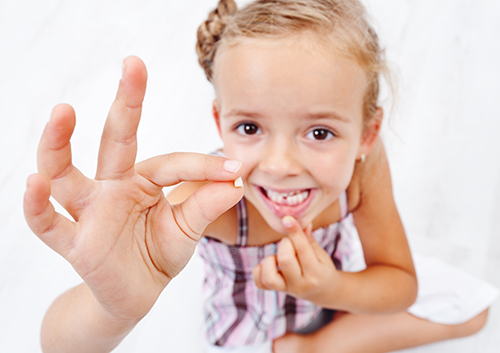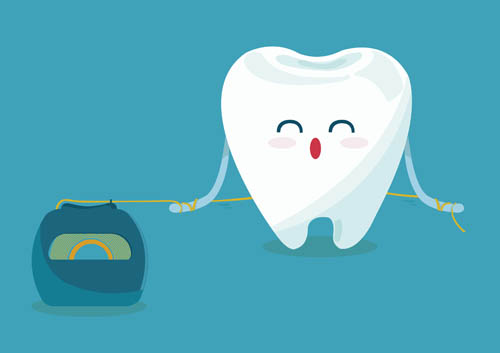May 3rd, 2017

People who have diabetes are usually familiar with many of the other health risks they face, including damage to the nerves, eyes, heart, and kidneys. But did you know that if you have diabetes you also have a much greater chance of developing gum disease? It's true, and like other diseases related to diabetes, the risk potential severity of gum disease is directly related to how well blood sugar is controlled.
The Causes
In diabetics, there are two primary mechanisms that increase the risk of developing gum disease, also called periodontal disease:
- Bacterial growth: Bacteria love sugar including the glucose found in blood and bodily fluids. Elevated levels of sugar in saliva can provide a very hospitable environment for bacterial growth. The risk may be elevated if your gums bleed.
- Circulatory changes: In diabetes, the blood vessels become thick, making it more difficult for blood to carry oxygen to the gums and to carry away harmful waste products. This decrease in circulation can weaken the mouth's natural resistance to decay. If you smoke, circulation can become even more compromised, significantly increasing your risk of periodontal disease.
Preventing Gum Disease
If you're diabetic, the number-one key to preventing gum disease is to make sure you do all you can to keep your blood sugar under control. In fact, studies show diabetics who have excellent control of their blood sugar levels have no more risk for gum disease than those who don't have diabetes. Here are some other tips to keep your gums healthy:
- Floss your teeth gently, curving the floss so it can gently reach just below your gum line to remove plaque and food particles. Rinse your mouth when you're done flossing.
- Use a soft-bristle brush to brush teeth twice daily, using small circular motions. Avoid pressing too hard on tooth surfaces.
- Brush your tongue gently to remove germs that can hide there.
- Use an anti-bacterial mouthwash to kill germs that are hard to reach.
- Keep track of how well your blood sugar is controlled and let Dr. Sardzinski, Dr. Wilken, Dr. Stanley, Dr. Hanson and Dr. Heying know at each visit.
- Be aware that having diabetes may mean it takes you longer to heal after undergoing oral surgery.
Most importantly, be sure to visit our Hiawatha, IA office for regular checkups and tell Dr. Sardzinski, Dr. Wilken, Dr. Stanley, Dr. Hanson and Dr. Heying about your diabetes so you can be sure to get the care you need. Follow these steps, and you can enjoy healthy teeth and gums for years to come.
April 26th, 2017

While the last baby teeth generally aren’t lost until age ten or 11, most children stop believing in the tooth fairy by the time they're seven or eight. Of course, children are more than happy to play along with the game when there’s money at stake! While it is impossible to know what the tooth fairy does with all those teeth (are they labeled and stored like museum pieces in a giant fairytale castle?), it is possible to trace the history and myth of the tooth fairy to several cultures and traditions. Dr. Sardzinski, Dr. Wilken, Dr. Stanley, Dr. Hanson and Dr. Heying and our team learned about some interesting myths about the tooth fairy!
The Middle Ages
Legend has it that Europeans in the Middle Ages believed a witch could curse someone by using their teeth, so it was important to dispose of baby teeth correctly. Teeth were swallowed, buried, or burned. Sometimes baby teeth were even left for rodents to eat. Despite being pests, rodents were valued for their strong teeth; it was generally believed a tooth fed to a rodent would lead to the development of a healthy and strong adult tooth.
Eighteenth Century France
The tooth fairy myth began to show more characteristics of a conventional fairytale in 18th century France. La Bonne Petite Souris, a bedtime story, tells the strange tale of a fairy that changes into a mouse to help a good queen defeat an evil king. The mouse secretly hides under the evil king’s pillow and defeats him by knocking out his teeth.
Scandinavian Lore
So, why does the tooth fairy leave money under the pillow? The idea of exchanging a tooth for coins originated in Scandinavia. Vikings paid children for a lost tooth. Teeth were worn on necklaces as good luck charms in battle. While the idea of exchanging a tooth for coins quickly spread throughout the rest of Europe, a fierce, horn-helmeted Viking is far cry from the image of a fairy collecting teeth.
While the tooth fairy as children know her today didn’t make an appearance until the 1900s, tooth myths and rites of passage have existed in numerous cultures since the dawn of time.
April 19th, 2017

Never before have dental implants looked as natural and aesthetically pleasing as they do today. With the help of computer-aided design and computer aided manufacturing (CAD/CAM), Dr. Sardzinski, Dr. Wilken, Dr. Stanley, Dr. Hanson and Dr. Heying and our team are able to create implants with impeccable fit and finish. Although these technologies have been in use since the 1980s, it's only recently that they became efficient and cost-effective enough to be useful.
Dr. Sardzinski, Dr. Wilken, Dr. Stanley, Dr. Hanson and Dr. Heying can also take digital scans of your teeth, providing a much more in-depth and accurate representation of them when compared to traditional X-rays. This scan can be used to create a physical model of your teeth through the use of 3D printing technology, allowing for the utmost in accuracy when planning your implant treatment.
Since each of our patients are unique, these CAD/CAM technologies offer a highly customized approach to implant dentistry that helps avoid the "one-size-fits-all" ways of the past. The goal is to have an implant look and function as closely as it can to the tooth it's replacing. That’s why these implants are typically milled using ceramic or composite resin — materials chosen due to their durability and resemblance to teeth.
Even the planning of your surgery can be aided and guided by computers. 3D CT scans create a digital representation of your mouth including all significant anatomical markers. This data is imported into planning software which, coupled with CAD/CAM implant technology, is able to 3D print surgical guides that snap into place over a patient's teeth. This means less risk for surgical error and much more accurately placed dental implants.
The main benefits of CAD/CAM dental implants are that they:
- Are extremely accurate for every patient, down to 50 micrometers
- Have better long-term results and more natural-looking implants
- Can be manufactured quickly, the same day in many cases
Of course this is just a quick summary of the benefits, and a computer-modeled implant may not always be the best option. If you have questions about the dental implants or the technologies we use to make them look as natural as possible, feel free to contact our Hiawatha, IA office.
April 12th, 2017

Of all the dental hygiene techniques you can use at home to promote clean teeth and good oral health, flossing is likely to be the one that troubles most people. It can be viewed as confusing and time-consuming, but when you learn how to floss your teeth correctly, you’ll find it’s easy to do on a daily basis.
Proper flossing techniques are vital to the health of your teeth and gums. These tips will help you with the correct flossing procedures. Likewise, Dr. Sardzinski, Dr. Wilken, Dr. Stanley, Dr. Hanson and Dr. Heying and our team can also help you learn how to floss effectively and efficiently.
Steps to Flossing Your Teeth Properly
- Choosing Dental Floss. You can find dental floss in various flavors, as well as waxed or unwaxed. If the floss you use seems to get stuck between your teeth, switch to waxed to make it easier.
- Flossing “Helpers.” Beginner flossers who have trouble coordinating the floss and the movements of their hands can use a floss holder to help them get in and around teeth.
- Preparing the Floss. Cut an 18-inch piece of floss to use for flossing a few teeth. This allows you to make progress before you must stop and cut another piece of floss.
- How to Hold It. Wind the ends around your middle fingers. Hold the floss taut, pinching each side with your thumbs and index fingers. Leave a couple inches free in the middle.
- The Process of Flossing. Use your index fingers to guide the floss toward your gum line. Bring it down between the teeth with a zigzag motion. Hold the floss in a C-shape around the tooth, and move it up and down along the side.
- Where to Floss. Use a clean portion of the floss to clean around and in between each tooth. Don’t forget about the molars in the back of your mouth, too!
Flossing: A Vital Part of Oral Care
Periodontal disease begins at the gum line; this is where flossing comes in. Regular flossing helps you remove plaque from the gum line and between your teeth to avoid gum disease. In conjunction with daily brushing and twice-a-year visits to Blair Ridge Dental, floss each day to maintain good oral hygiene and overall health. Gum disease can have an impact on your general health, but it doesn't have to. This easy-to-prevent condition can be avoided with regular visits to our Hiawatha, IA office and daily flossing. Allow our team to partner with you in maintaining a bright, shiny smile and good oral health.





